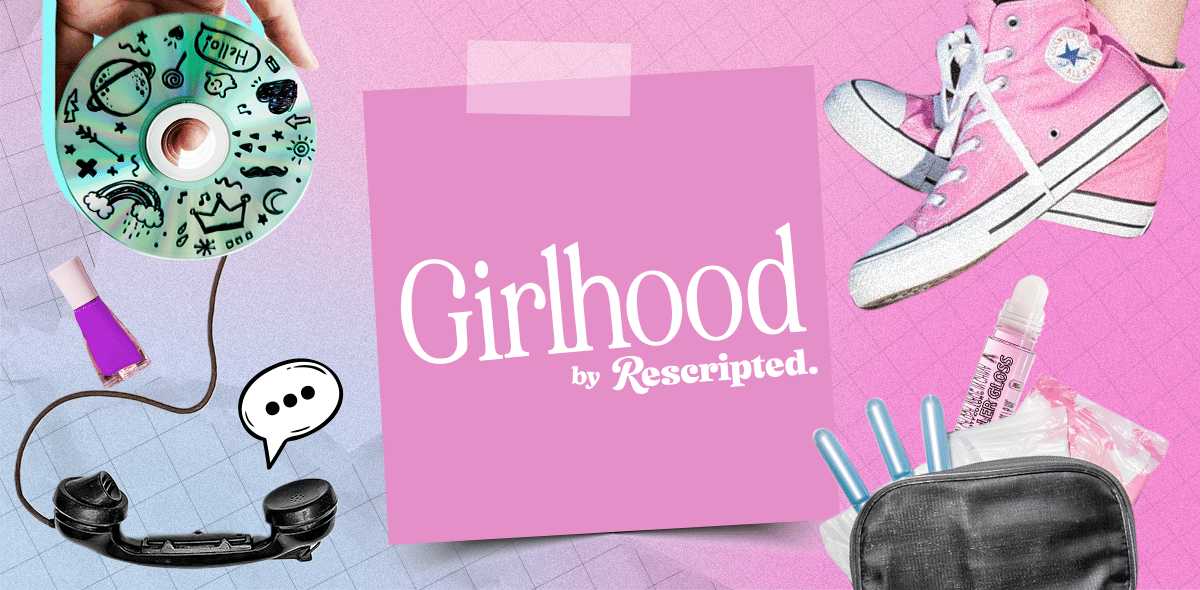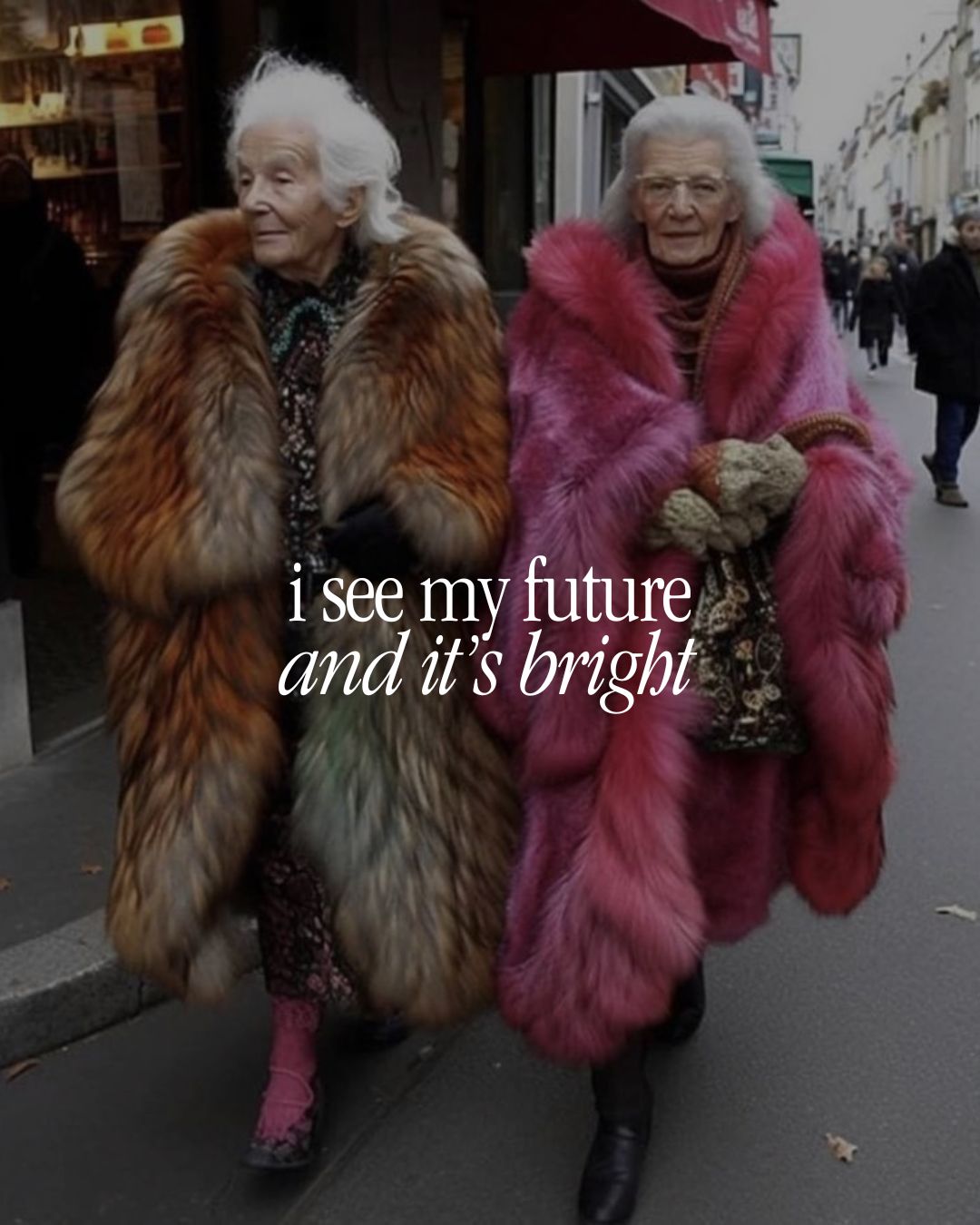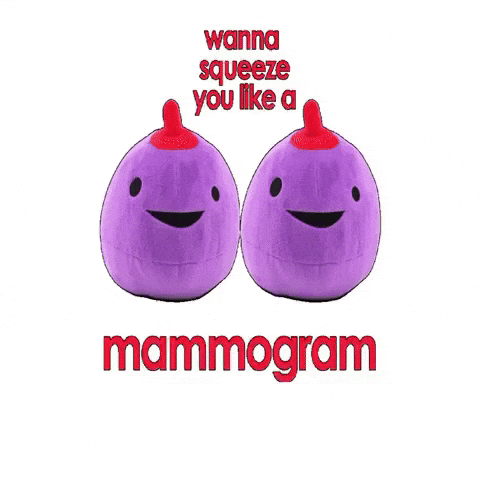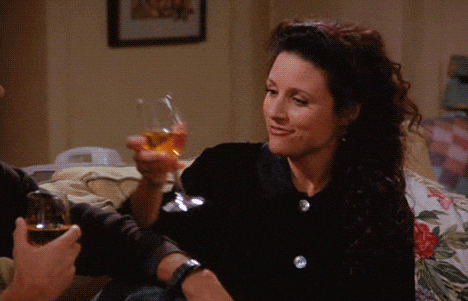- Girlhood
- Posts
- Is Wellness Culture Killing Fun?🍷
Is Wellness Culture Killing Fun?🍷
Plus, how I learned I had a 20% lifetime risk of breast cancer

If you’re new here, welcome to Girlhood, the group chat we should have had all along — where we talk openly about our bodies, the questions we whisper about, and the everyday moments that make us pause, laugh, or rethink life. It’s everything you’re feeling, but didn’t know how to say. Now let’s dive in!
Hi friend,
If I posted a photo of my new “home gym” on Instagram, I could absolutely fool you. I’d angle the shot just right so the lighting hits my dumbbells at a flattering angle, crop out the chaos, maybe even toss on a filter for good measure. You’d probably think, Wow, she’s really got it together.
But if you zoomed out even an inch, you’d see the truth: the other half of my garage is a jumble of bikes, scooters, soccer balls, and whatever random kid treasures have migrated there. There are holes in the walls, dust on the floor, and a general vibe of “this was never meant to be a gym,” because… it wasn’t. It’s a garage.
That’s what you might see.
What I see is very different. I see a small corner of my life that doesn’t belong to anyone else — no toys, no laundry piles, no one asking me where their water bottle went. It’s not fancy, but it’s quiet. It’s mine. And for thirty to forty minutes a day, that’s enough.

I’ve always been someone who prioritizes movement, but working from home changed the game. Suddenly, I was living, parenting, and working all in the same few rooms. I didn’t need perfect conditions to work out; I just needed a place that wasn’t tied to everyone else’s needs. A place where my brain could switch gears the second I stepped inside.
So no, it’s not influencer-worthy. But it’s real, and it works, and it gives me a tiny pocket of breathing room in a very full house. And maybe that’s the real win: not the gym itself, but finally letting “good enough” be the bar.
🔍 Ask Clara: Why does moving your body help your mood so much?
💌 Can’t find Girlhood in your inbox?
Check Spam or Promotions, drag us back, then add [[email protected]] to your contacts and ⭐ it, so we always land right where we belong.
👏🏻 FDA Said “Actually, She’s Fine.”
I recently listened to a friend — a brilliant, informed, healthy 39-year-old — hesitate to start hormone replacement therapy for perimenopause because of “the breast cancer risk.” A myth she’d held for years. A myth millions of women have carried for decades. And it made me realize: we think we know better, but sometimes… we don’t.
I jumped in (obviously), but what if I hadn’t? How many women walk away believing the same story, passed down by headlines, fear, and misread science? That story has shaped and limited women’s health for over twenty years.
The Women’s Health Initiative study of the early 2000s was wildly misinterpreted. It triggered a 70% drop in HRT use, left a generation of clinicians unsure about prescribing it, and forced countless women to silently endure hot flashes, sleepless nights, mood swings, and the strange feeling that their own bodies were betraying them. Mothers, daughters, sisters, friends stepping back when their bodies wouldn’t let them step forward.
So when the FDA announced they were removing the black box warning from vaginal estrogen this week, it felt, and truly is, historic. Finally, a long-overdue correction. A chance for women to reclaim clarity, confidence, and care that has been clouded by outdated fear for far too long.

Of course, HRT isn’t a free pass (timing, dosage, and personal medical history all matter), but having the right information, without a sensationalized warning label, is the first step toward making decisions that actually fit our lives.
For once, it feels like women’s health is catching up to the women themselves: listening, learning, and finally treating us as the nuanced, complicated, formidable humans we are.
🔍 Ask Clara: What is hormone replacement therapy?
📬 Your friend’s cool for forwarding this, but don’t wait — subscribe to Girlhood, and get the real talk delivered straight to your inbox first. And for conversations that happen in the moment, join our WhatsApp community to connect with other women who get it.
🧖🏽♀️ The Luck I Didn’t See at First
Speaking of breast cancer risk… when I repeated genetic testing during my most recent IVF cycle, I expected it to be uneventful. I’d already done it before; it felt like just another box to check. But then the results came back: I carry an ATM gene mutation, which puts me at about a 20% lifetime risk of breast cancer.
It was one of those moments where the room doesn’t spin, exactly, but everything suddenly feels sharper. Clearer. Heavier. I had been focused on getting through another retrieval, another transfer… and now here I was, learning I’d need a mammogram and breast ultrasound every year, plus a breast MRI six months in between. Not someday. Not “after 40.” Now.

What made it even harder to process was that it didn’t feel abstract. One of my best friends died of breast cancer at 31. I watched her fight. I watched how fast it moved. I watched how young she was. So reading the word risk wasn’t just informational; it felt like someone tapping on a bruise I’d spent years protecting.
And yet, life didn’t pause. I was running a business, managing a household, juggling calendars and deadlines. There’s something surreal about learning you need ongoing surveillance in the middle of answering work emails.
But here’s what I’ve settled into: this isn’t a sentence. It’s a roadmap. Knowing my risk means I get to do something. Not everything, but something. I can monitor, ask questions, stay ahead, and refuse to pretend this isn’t hard while still moving forward.
And while the screenings are another layer to an already full life, they’re also a lifeline — a way to stay ahead of something that once blindsided someone I loved.
I didn’t choose this knowledge, but I feel pretty damn lucky to be able to decide what I do with it.
🔍 Ask Clara: What to know about cancer in women under 40
💸 Share your story! You’ve been through some sh*t — why not get paid to talk about it? 💸
Rescripted is collecting real stories from real women — because sharing makes us feel less alone.
If we feature your story, you’ll receive $20 and help normalize conversations many of us are still whispering about.
👉 Share your story here.
💜 Thanks for being part of something powerful.
🍷 Is Wellness Culture Killing Fun?
The other night, I started to feel a little bit of that seasonal depression kicking in.
It’s getting dark earlier. My entire family has been sick on and off for about two months. My husband and I haven’t been on a date night in probably that same amount of time. The house was a mess. You know the drill.
I hadn’t had a drink in, like, eight days (but who’s counting?!) and felt weirdly guilty about indulging in a glass of wine after such a “good run.” But I did. And honestly? I felt immediately better.
I’m not pushing mommy-wine culture, trust me. But in a country where mothers are largely unsupported and constantly told what they should be doing to optimize their physical, mental, and emotional health, I want to say this: it’s okay to have the occasional cocktail — especially if all that “wellness” is coming at the expense of joy.

Whenever I tell my husband that drinking isn’t healthy, he says, “Neither is stress.” And he’s right. Life isn’t always about discipline. Sometimes filling your cup means having a beer with your partner after a long day, or celebrating a friend’s promotion instead of hitting the gym.
It made me wonder: are we overthinking wellness to the point that we’ve squeezed out all the fun? When did trying to feel good turn into trying to do good? When did a glass of wine, a Diet Coke, or skipping strength training become a moral failing?
Maybe it’s not that we’ve lost control. Maybe we’ve just lost the plot — forgetting that feeling good is part of being well in the first place.
xo,
Kristyn
🔍 Ask Clara: What is seasonal affective disorder?
🩸 Never Miss a Women’s Health Signal
Want Rescripted to pop up in your Google Top Stories? Add us as a preferred source, and stay ahead on everything from periods to pregnancy to perimenopause.
👉 Add Rescripted on Google here.

.jpg)
.jpg)

Reply